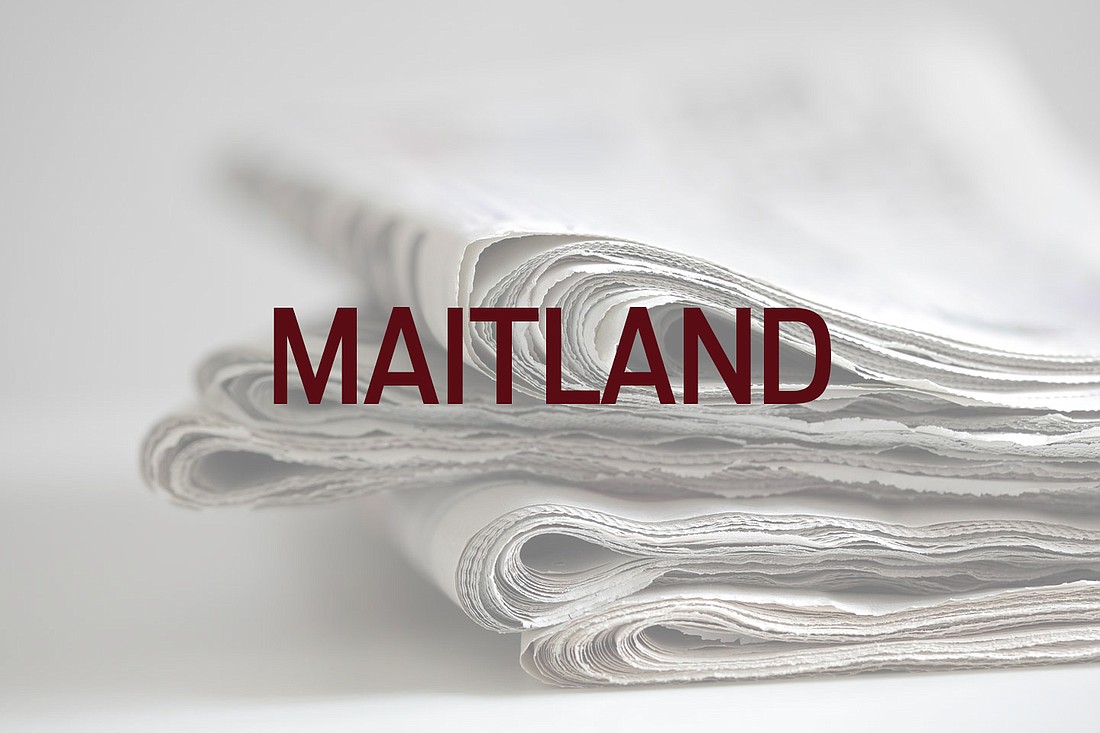- December 20, 2024
-
-
Loading

Loading

Maitland introduced an ordinance setting the stage for 5G cellular facilities in the city and approved an amendment to an interlocal agreement with four other cities Monday, Feb. 25.
5G Cell Ordinance
The council introduced an ordinance to amend the city code to create an oversight and review process for the implementation of a 5G cellular network infrastructure in the city.
The Florida Legislature passed the Advanced Wireless Infrastructure Deployment Act in 2017 to pave the way for 5G cellular technology facilities, which will be more numerous and closer to one another than the current 4G infrastructure. The 5G technology is expected to be ready for use by 2020 and have a country-wide network of more than 800,000 cell antennas by 2026, according to city documents.
The state act allowed installation of new poles for cell facilities, ground-mounted equipment, and new cell facilities on government-owned poles.
Mayor Dale McDonald bristled at the act’s preempting of local government’s ability to regulate the issue beyond the cell antennas aesthetics, which likely will be hidden in street poles.
“This is about Home Rule,” McDonald said. “It’s easier for these providers to deal with one single state and Legislature than 400 cities and 67 counties. Never misunderstand: This is never about doing the right thing. Now the product is going to be fabulous, but that’s not what this is about.”
The ordinance is based on the Florida League of Cities model and limits the height of the wireless facilities, establishes requirements for location, color, concealments, and requires the use of existing poles for the antennas as much as possible.
The ordinance will have a public hearing at the April 8 meeting.
Interlocal Amendment
Maitland amended an interlocal agreement with other Central Florida cities as it enters a new year.
The cities of Maitland, Longwood, Altamonte Springs, Lake Mary and Sanford formed a five-city agreement in 2016 to identify alternative forms of transportation to combat mobility challenges.
The cities initiated a pilot program to increase SunRail ridership between cities by offering 20% to 25% discounts for Uber ride-sharing.
A city study claimed ridership for the Maitland Sunrail station increased 21% from January 2018 to 2019, with 205 daily passengers compared to 161, but City Manager Sharon Anselmo believed much of that could be attributed to the adjacent Maitland City Centre complex.
For the new phase of the partnership, the cities wished to extend that discount to other ride-sharing platforms through a new application process. The Maitland amendment would include the application and authorize the mayor to execute agreements for qualifying transportation companies.
Council spent time discussing the efficacy of the program to attract SunRail riders and ultimately decided to approve the amendment with the provision that city staff would explore new ways to advertise the ride-sharing initiative.
In Other News:
The council introduced an ordinance authorizing the city to issue $20 million in additional utility fund debt through the state’s revolving loan fund program.
The council approved a budget appropriation of $23,550 from the Law Enforcement Forfeiture Trust for the 2019 budget. The funds will be used to purchase $3,300 of first aid and medical supplies, $10,000 for community policing events and educational and promotional materials, $5,250 for SWAT equipment, holsters and an obstacle course cargo net and $5,000 on additional supplies.
The city approved an agreement with the Burgess & Niple group to design the remaining phases of the capital improvement plan providing sewer services to the Dommerich Hills area. Although the plan’s first phase has been designed and is in the bidding phase with Risk, Burkardt Construction, the remaining three phases will be completed as a single project. The combined cost will total $4.2 million and amount to a little more than 9% of the construction costs.